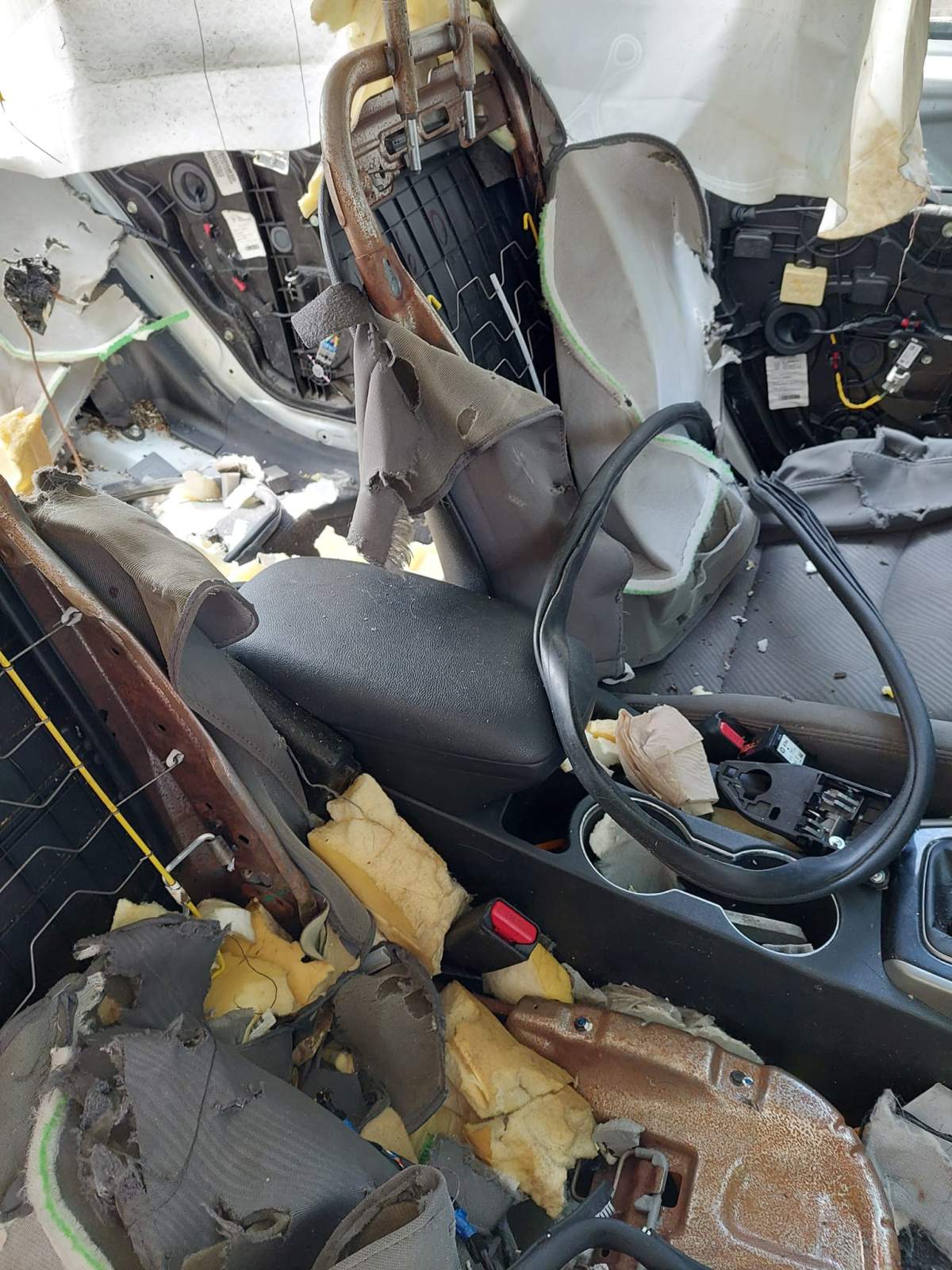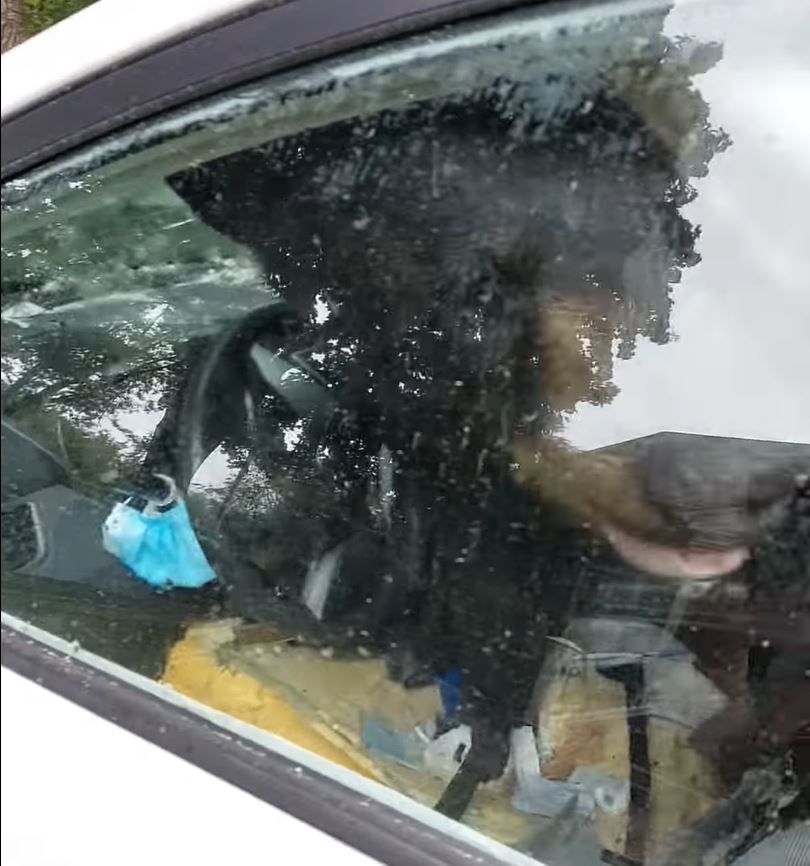When Jackie Young was awoken by her barking dog at 5 a.m. on Sunday, she wasn’t prepared for what she found at the end of her driveway at her Malagash, N.S. home.

A black bear had somehow “broken” into her car, and was tearing up the interior in a panicked attempt to free itself.
“The horn started to honk because he was trying to get out. He was just lunging. My car was diagonal because he was lunging and he had literally moved the car from the interior trying to get out,” Young told Global News.
Young said she had left a small bag of garbage in the trunk of her unlocked car, and believes the bear had first tried to get at it through the back of the car. When that failed, the bear somehow managed to open one of the side doors.
The door shut itself, and the child safety locks in the backseat prevented the bear from getting out. She estimates the bear was trapped for an hour.
“The bear probably would have suffocated because all the windows were completely up and it was panting like crazy.”
She called 9-1-1 and was advised a forestry official with the province was en route. In the meantime, she captured a short video of the bear at the driver’s side door, sniffing at the window.
It was at this point — merely five minutes before the officer arrived — that the bear managed to open the door and escape.
“Oh my God he was not a happy bear at that point!” Young said. “Fortunately I managed to run to the house when he got out. I’m almost 80, so this is not a fun thing.”
Reg Delorey, the area manager with the Department of Natural Resources in Cumberland County, arrived at the scene and confirmed Young’s unwelcomed visitor was an adult bear. He said the community is known to have many bears, but they “haven’t had an issue with this particular bear.”
He said the animal had become used to coming to Young’s property in search of food, and the animal’s natural dexterity meant opening car doors was not surprising.

Get breaking National news
He said while the damage to the car was extensive, the bear’s behaviour was a result of it being frightened and feeling trapped.
“He’s not an aggressive bear, he’s not a dangerous bear, he was just a bear that was trying to find food,” Delorey said.
The interior of Young’s 2013 Hyundai Elantra was destroyed and her insurance has told her none of it is covered because she didn’t have comprehensive coverage.
“It was like a bomb went off,” she said, while describing the aftermath of the bear’s time in her vehicle.
Now, she’s not only looking for a new vehicle, but she’s concerned the bear will come back.

Young thinks she’s encountered the same bear before, roaming on the road near her rural home. As well, her compost bins have been knocked over several times.
She believes the bear was also responsible for $3,000 worth of damage to some fenced-in bee hives that were on her property six weeks ago.
“This bear has really done a number on me, really it has,” she said. “I’m not exaggerating, not even one iota, he was a big boy. He really is!”
After discussing the issue with Delorey, Young said she now plans to put a freezer in the barn in which to keep her compost.
“Bears …. are very smart. They’ll look for food in the easiest place to get it,” said Delorey. “If a bear comes to your house to look for food and doesn’t find it, he will move on.”
Organizing a neighbourhood meeting
Young said she wants to organize a community meeting with the Department of Natural Resources to talk to her neighbours about how to protect themselves.
She pointed out her property, where she operates a home for people with disabilities, is clean and she doesn’t leave trash out.
“This is just astounding. It’s quite amazing and I do not have garbage all over the place or anything of the sort. I don’t have a messy anything,” she said.
“It’s a pretty serious business and really I hear of other counts of bears attacking birdfeeders and things of that sort. I’m not the only one.”
According to the Department of Natural Resources, black bears are most often attracted by human food, and the the most effective way to prevent bear interactions is to remove that attractant.
“Once a bear has found a food source, it will likely return,” reads a department hand-out about black bears.
“Once a bear has found a food source, it will likely return. In many of these situations, when preventative actions are unsuccessful and bears become more and more bold, these “spoiled” animals must be destroyed.”
If a person encounters a black bear, the advice is to stay calm, speak in a firm voice and back away. A person should not make loud noises or threatening gestures, unless being attacked by the bear.










Comments
Want to discuss? Please read our Commenting Policy first.